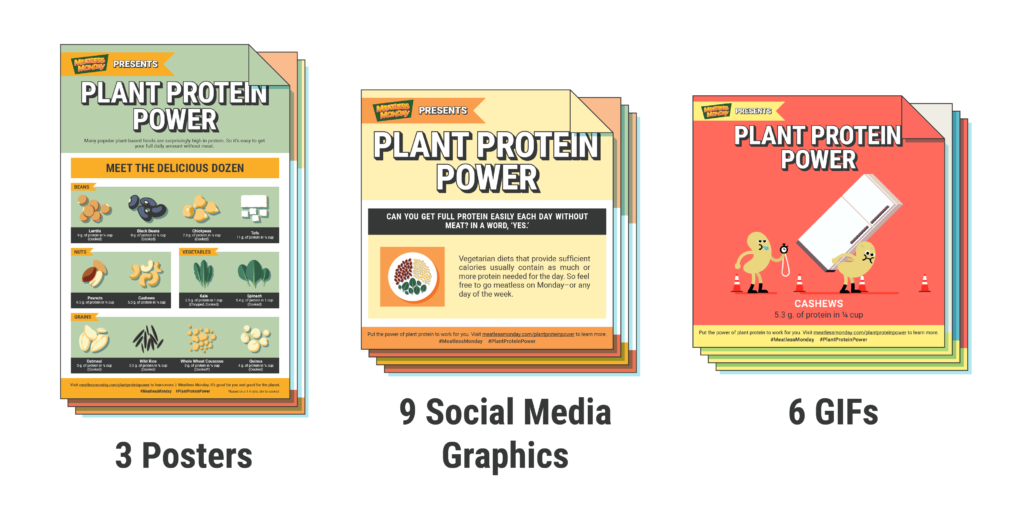Plant Protein Power
Get your full day’s protein – without meat.
Inspiration: The Meatless Monday Plant Protein Power Package was inspired by the question we often hear: “Can I get a full day’s protein through a meatless diet?”
In fact, in a recent national survey, 52% of consumers agreed that getting enough protein was perceived as one of biggest challenges in cutting back on meat. (1)
While we know it’s possible, we turned to our team of experts at the John Hopkins Center for a Livable Future to prove why this is a smart choice and how easily it can be done.
Why Plant-Based Protein: You can easily get the full U.S. recommended daily allowance of protein each day without eating meat, and plant-based protein is an excellent choice:
- Most Americans eat 1 ½ times more protein than they need each day.
- Nuts, beans and grains can be especially high in protein.
- Plant protein is filled with nutrients and fiber, and helps strengthen and repair muscle tissue – ideal even for high performance athletes.
- Plant protein does not have the negative outcomes that may occur with excessive meat consumption, such as heart disease, obesity, diabetes, and cancer.
- Plant-based food choices can improve the health of the planet! They can save water, conserve energy, and reduce greenhouse gas emissions.
Encourage plant-based choices with Meatless Monday’s Plant Protein Power Package, which includes posters, point-of-sale signage, and digital and social media graphics. Access our free resources now.
- Feature in your dining hall, office, restaurant, school, or community center.
- Distribute to your customers, clients, and patients.
- Share them on your website and social media. Remember to use the hashtags #MeatlessMonday and #PlantProteinPower to help us track.
By choosing to eat plant-based foods instead of animal proteins on Meatless Monday, you can improve your health and the health of the planet
Reference:
1. Data Decisions Group, 2017. Online survey of 1,010 American adults.

